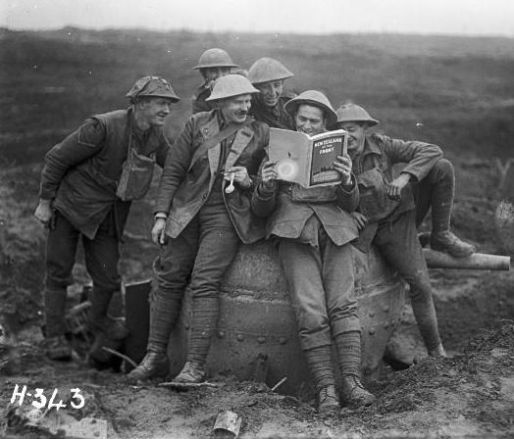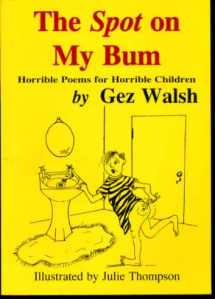
Are you looking to study English Literature at university? Do you love reading and want to push yourself further? Give this extensive list a look! Don’t be intimidated – pick a small selection, do some quick research and give it a go!
‘Studying English Literature: A Practical Guide’, Tory Young
‘The Oxford Companion to English Literature (Oxford Companions)’, Dinah Birch
‘AQA English Literature B AS Second Edition (Aqa As Level)’, Adrian Beard and Alan Kent
‘The Cambridge Companion to Shakespearean Comedy (Cambridge Companions to Literature)’, Alexander Leggatt
‘Comedy: A Very Short Introduction (Very Short Introductions)’, Matthew Bevis
‘The Seven Basic Plots: Why We Tell Stories’, Christopher Booker
‘Modern Criticism and Theory’, Prof David Lodge and Dr Nigel Wood
‘The Oxford Dictionary of Literary Terms (Oxford Paperback Reference)’, Chris Baldick
‘Beginning theory (third edition): An introduction to literary and cultural theory (Beginnings)’,Peter Barry
‘York Notes Companions Gothic Literature’, Dr Susan Chaplin
‘The Art of Fiction’, David Lodge
140 of the best literary works to prepare you for University!
Beowulf : Seamus Heaney’s translation (Faber) is currently the most popular translation
Geoffrey Chaucer, The Canterbury Tales (The Riverside Chaucer edition)
Dante Alighieri, The Divine Comedy (Penguin)
Giovanni Boccaccio, The Decameron (Penguin)
Francesco Petrarch, Canzoniere (Carcanet)
English Religious Lyrics. (Norton)
Medieval English Lyrics (Faber)
Sir Thomas Wyatt, Poems (Norton)
Edmund Spenser, Amoretti (Norton)
Sir Philip Sidney, Astrophel & Stella (Norton)
Everyman (New Mermaid)
Christopher Marlowe, Dr Faustus (Norton)
William Shakespeare, Titus Andronicus (Oxford)
William Shakespeare, The Taming of the Shrew (Oxford)
William Shakespeare, Richard III (Penguin)
William Shakespeare, Twelfth Night (Penguin)
William Shakespeare, Hamlet (Penguin)
Thomas More, Utopia (Norton)
Niccolò Machiavelli, The Prince (Penguin)
John Donne, Poems (Penguin)
William Shakespeare, King Lear (Penguin)
William Shakespeare, The Tempest (Arden)
John Webster, The Duchess of Malfi (Norton)
Cyril Tourneur, The Revenger’s Tragedy (Penguin)
Ben Jonson, Volpone (Norton)
Robert Herrick, Poems (Norton)
George Herbert, Poems (Norton)
John Milton, Paradise Lost (Penguin)
John Milton, Samson Agonistes (Longman)
Andrew Marvell, Poems (Norton)
William Wycherley, The Country Wife (New Mermaid)
John Bunyan, The Pilgrim’s Progress (Penguin)
John Dryden, Poems (Norton)
Samuel Pepys, Diary (Norton)
Daniel Defoe, Robinson Crusoe (Penguin)
Jonathan Swift, A Modest Proposal (Norton)
Jonathan Swift, Gulliver’s Travels (Norton)
Henry Fielding, Tom Jones (Penguin)
Lawrence Sterne, A Sentimental Journey (Penguin)
Oliver Goldsmith, The Vicar of Wakefield (Penguin)
James Boswell, London Journal (McGraw-Hill)
Samuel Johnson, Rasselas (Norton)
Daniel Defoe, Journal of the Plague Year (Norton)
Alexander Pope, The Rape of the Lock (Norton)
Alexander Pope, The Essay on Man (Norton)
Christopher Smart, Jubilate Agno (Norton)
James Thomson, The Seasons (Norton)
Thomas Gray, Poems (Norton)
Oliver Goldsmith, The Deserted Village (Norton)
Richard Sheridan, The School for Scandal (New Mermaid)
Jane Austen, Sense & Sensibility (Oxford)
Jane Austen, Pride & Prejudice (Oxford)
Jane Austen, Emma (Oxford)
Jane Austen, Persuasion (Oxford)
William Wordsworth, Poems (Penguin)
Samuel Taylor Coleridge, Poems (Norton)
John Keats, Poems (Norton)
Percy Bysshe Shelley, Poems (Norton)
William Blake, Poems (Oxford)
Robert Burns, Poems (Penguin)
Thomas De Quincy, Confessions of An English Opium Eater (Penguin)
Mary Shelley, Frankenstein (Penguin)
Alfred Tennyson, Poems (Everyman)
Robert Browning, Poems (Everyman)
Elizabeth Barrett Browning, Sonnets (Norton)
Christina Rossetti, Poems (Norton)
Edgar Allan Poe, Poems (Penguin)
Charles Dickens, Oliver Twist (Penguin)
Charles Dickens, Great Expectations (Penguin)
Emily Brontë, Wuthering Heights (Penguin)
Charlotte Brontë, Jane Eyre (Penguin)
Anthony Trollope, Barchester Towers (Penguin)
Gustave Flaubert, Madame Bovary (Penguin)
George Eliot, Middlemarch (Penguin)
George Eliot, Silas Marner (Penguin)
Herman Melville, Moby-Dick (Penguin)
Ivan Turgenev, Spring Torrents (Penguin)
Fyodor Dostoevsky, Crime & Punishment (Penguin)
Thomas Hardy, Tess of the D’Urbervilles (Penguin)
Thomas Hardy, Jude the Obscure (Penguin)
Thomas Hardy, The Mayor of Casterbridge (Penguin)
Henry James, What Maisie Knew (Penguin)
Oscar Wilde, The Importance of Being Earnest (Penguin)
Henrik Ibsen, A Doll’s House (Oxford)
August Strindberg, The Father (Penguin)
James Joyce, Dubliners (Penguin)
James Joyce, A Portrait of the Artist as a Young Man (Penguin)
D.H. Lawrence, Sons & Lovers (Penguin)
E.M. Forster, A Passage to India (Penguin)
E.M. Forster, A Room With A View (Penguin)
E.M Forster The Machine Stops (Penguin)
James Joyce, Ulysses (Penguin)
T.S. Eliot, Poems (Faber)
Ezra Pound, Poems (Faber)
Virginia Woolf, To the Lighthouse (Penguin)
Virginia Woolf, A Room of One’s Own (Penguin)
Joseph Conrad, Heart of Darkness (Penguin)
W.B. Yeats, Poems (Norton)
Wilfred Owen, Poems (Norton)
Robert Graves, Goodbye To All That (Penguin)
Evelyn Waugh, Brideshead Revisited (Penguin)
Christopher Isherwood, Goodbye to Berlin (Vintage)
Graham Greene, Brighton Rock (Penguin)
W.H. Auden, Poems (Faber)
Louis MacNeice, Poems (Faber)
Keith Douglas, Poems (Oxford)
George Orwell, 1984 (Penguin)
George Orwell, Animal Farm (Penguin)
Hermann Hesse, Strange News from Another Star (Penguin)
Primo Levi, If This Is A Man (Abacus)
John Osborne, Look Back in Anger (Faber)
Arthur Miller, The Crucible (Penguin)
Arthur Miller, All My Sons (Penguin)
Tennessee Williams, A Streetcar Named Desire (Penguin)
Samuel Beckett, Waiting for Godot (Faber)
Harold Pinter, The Caretaker (Methuen)
Vladimir Nabokov, Lolita (Penguin)
William Golding, Lord of the Flies (Faber)
William Golding, The Spire (Penguin)
Kingsley Amis, Lucky Jim (Penguin)
J.D. Salinger, The Catcher in the Rye (Penguin)
Brian Moore, The Lonely Passion of Judith Hearne (Panther)
Philip Larkin, Poems (Faber)
John Fowles, The French Lieutenant’s Woman (Vintage)
Tom Stoppard, Rosencrantz & Guildenstern are Dead (Faber)
John Updike, Rabbit Omnibus (Penguin)
Joe Orton, Loot (Methuen)
Iris Murdoch, The Sea, The Sea (Penguin)
Toni Morrison, Song of Solomon (Picador)
Mervyn Peake, Gormenghast (Penguin)
Gabriel García Márquez, Love in the Time of Cholera (Penguin)
Salman Rushdie, Midnight’s Children (Picador)
Isabel Allende, The Stories of Eva Luna (Penguin)
Brian Friel, Translations (Faber)
Philip Roth, The Human Stain (Vintage)
Seamus Heaney, Poems (Faber)
Ted Hughes, Poems (Faber)
R.S. Thomas, Poems (Bloodaxe)
Tom Wolfe, The Bonfire of the Vanities (Picador)
Martin Amis, London Fields (Picador)
Graham Swift, Waterland, Last Orders (Picador)















